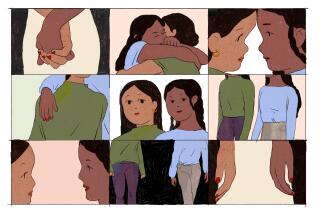The Voice of AIDS Calls From Africa
- Share via
To the delegates at the United Nations General Assembly Special Session on HIV/AIDS, Monday-Wednesday in New York:
I hear many of you will be attending this historic meeting. I wish you well. Please read my story. For until you understand what’s happened to me and countless others like me, you will not be able to stop the spread of HIV.
I am a Nigerian. I first found out about HIV when I was 17, in 1999, when I discovered that I carried the virus. I didn’t know who infected me. At age 12, a relative sexually abused me. Two years later, four men raped me while I was walking home from school. I feel sure I got the virus during one of those violent acts.
In 1998, I was sick with typhoid fever and went to the hospital, where they did a test and found that I was HIV positive. They did not tell me. A year later, as my small farming village began learning about HIV, rumors were flying that I had AIDS. I went back to the hospital for another test, which confirmed that I was infected.
I still didn’t know what that meant. I took it as another sickness and forgot about it. Only later was everything explained to me--how the virus is spread and that there is no cure.
I realized that I would die and I became very scared. I locked myself in a room for days without eating, hoping that death would just take me. One year passed. I was so sad that I rarely went out of the house where I live with my grandmother and younger sister.
I have never discussed my HIV status with my mother, but I’m sure she knows. My father, who works for a church, loves me very much. I told him about the infection and he accepted it. But not long after, his wife (my stepmother) slammed the front door of their house in my face, saying I had come to give her children the disease. I have not been back.
In fact, as soon as I went public with my status, people began to avoid me. If I was on the road and greeted somebody, the person would just look at me from head to toe and pass without saying a word. Some people would say things just to hurt my feelings. I thought about killing myself.
The fear and depression only recently left me. UNICEF helped me enroll in a counseling program, where I talked with other people living with HIV. That helped me rediscover my love of life.
A lot of people in my area are infected with HIV, especially teenage girls and boys. The main reason for this is that we weren’t informed of its dangers and how to protect ourselves. But you cannot ignore poverty’s role. The people depend on subsistence farming, but it is not enough. Many of the girls are very intelligent but have nobody to pay for their education. They work on farms to earn a little money. They also must turn to sexual relationships. Many of them leave their boyfriends’ houses early every morning with 20 or 30 naira to buy something to eat.
Another problem is that girls as young as 12 are given away in marriage. Many rebel later, but by then they have children. To support their families, they go to the city to become prostitutes. This is helping spread HIV.
Yet many people still have not heard of HIV, or don’t believe it exists. I tell people about my status and try to inform them of the dangers. You will often see a group of people at my place, mainly HIV-positive girls seeking advice. Most of them have faced experiences similar to mine, especially the sexual abuse and stigmatization.
My life has changed because of HIV, but my dreams have not. I graduate next year and want to study mass communications in the university. I like to read novels and listen to gospel music. When I was in primary school, I was one of the country’s best gymnasts. But sports is not part of my life now. While I am lucky not to have any severe sickness yet, I sometimes feel weak.
I go to school three days a week and use the other days to regain my strength. I have heard of anti-retroviral drugs that control AIDS, but I can’t even get an ordinary analgesic.
I am the face of HIV/AIDS. There are millions more like me. If you don’t act immediately, there will be millions more to come.
More to Read
Sign up for Essential California
The most important California stories and recommendations in your inbox every morning.
You may occasionally receive promotional content from the Los Angeles Times.













